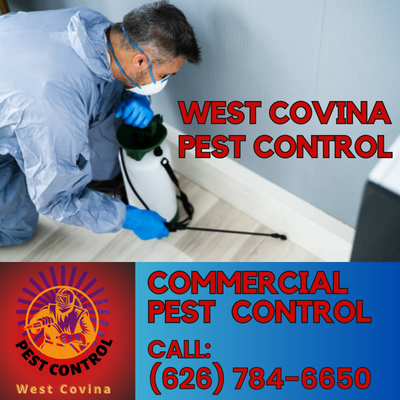Pest Control Clovis: Remove Vermin At Last
Pest Control Clovis: Remove Vermin At Last
Blog Article
Comprehending the Various Techniques to Parasite Control: A Comprehensive Guide

Natural Insect Control Techniques
Employing environmentally friendly techniques such as friend growing and biological parasite control is necessary for efficiently managing bugs in farming settings. Companion planting includes expanding different plants in distance to hinder parasites, improve nutrient uptake, and enhance general plant health and wellness.
Biological bug control includes presenting natural killers or microorganisms to regulate pest populations. Ladybugs, for example, eat aphids, managing their numbers without the need for chemical pesticides. One more instance is making use of Bacillus thuringiensis (Bt), a microorganism that targets particular insect parasites while being safe to humans, pets, and beneficial pests.
These environmentally friendly approaches not only minimize the dependence on synthetic chemicals yet additionally assist maintain biodiversity and soil health and wellness. By including natural bug control strategies into farming practices, farmers can accomplish lasting pest administration while decreasing negative effects on the setting.

Chemical Insect Control Solutions
In enhancement to all-natural parasite control methods, the usage of chemical insect control options plays a substantial duty in effectively managing pest populations in agricultural atmospheres. Chemical bug control options are created to target details parasites that might cause comprehensive damage to crops. These services typically consist of synthetic pesticides that are developed to eliminate insects swiftly and effectively.
One of the essential advantages of chemical pest control solutions is their effectiveness in controlling parasite problems on a huge range. Farmers can use these options utilizing various methods such as splashing, airing out, or seed treatment to safeguard their plants from harmful pests, weeds, and conditions. Furthermore, chemical insect control solutions are relatively very easy to apply and can offer rapid results, assisting farmers protect their yields and lessen financial losses.
Nonetheless, it is necessary to use chemical bug control options deliberately to reduce potential adverse effects on the setting, non-target organisms, and human health and wellness. Appropriate application strategies, adherence to security guidelines, and routine monitoring are vital to guarantee the liable use of chemical pest control services in farming practices.
Biological Parasite Control Approaches
Organic parasite control comes close to leverage natural predators or pathogens to manage insect populations in agricultural settings successfully. One usual organic control technique is the intro of all-natural adversaries, such as ladybugs or parasitical wasps, to target certain parasites.
An additional biological control approach includes making use of microorganisms like microorganisms, fungi, or infections to infect and eliminate insects. On the whole, biological parasite control methods supply a sustainable and targeted remedy to pest administration in farming.
Integrated Insect Monitoring (IPM)
Integrated Insect Monitoring (IPM) is a detailed approach that integrates numerous pest control methods to efficiently take care of and minimize pest populations in farming systems. IPM concentrates on long-term prevention of insects with a mix of biological, cultural, physical, and chemical control techniques. By incorporating these various methods, IPM aims to minimize dependence on chemical pesticides, minimize environmental effect, and advertise lasting insect monitoring methods.
One secret aspect of IPM is making use of organic controls such as all-natural predators, parasites, and microorganisms to control bug populaces. This approach harnesses the power of nature to preserve a balance between bugs and their all-natural Recommended Reading opponents without her explanation triggering injury to the setting.
Additionally, IPM involves cultural practices like crop habitat, sanitation, and turning adjustment to develop undesirable conditions for insects and disrupt their life process. Physical controls such as obstacles, mulches, and traps are additionally used to stop insect invasions.
Mechanical and Physical Insect Control Techniques
Making use of non-chemical techniques, such as mechanical and physical pest control strategies, is an important aspect of comprehensive parasite administration techniques, building on the structure of Integrated Bug Management's all natural technique. Mechanical insect control entails the usage of physical barriers or traps to avoid insects from accessing and harming plants or structures. This approach can include techniques like mounting screens on home windows, using row covers in farming, or utilizing sticky catches to catch pests.
Physical bug control methods, on the various other hand, her explanation focus on straight eliminating bugs through physical means. As an example, using warm treatments to remove bed bugs or vacuuming up bugs like crawlers or ants can be reliable ways to handle problems without making use of chemicals. By integrating these mechanical and physical insect control strategies into an Integrated Insect Monitoring strategy, specialists and people can decrease dependence on chemicals while still efficiently taking care of pest populaces and lessening damage.
Final Thought

In enhancement to natural parasite control techniques, the utilization of chemical parasite control options plays a significant duty in efficiently managing pest populations in farming atmospheres.One of the key benefits of chemical pest control options is their effectiveness in regulating pest problems on a large range.Integrated Pest Administration (IPM) is an extensive approach that integrates numerous insect control approaches to efficiently take care of and reduce pest populaces in farming systems.Utilizing non-chemical approaches, such as mechanical and physical bug control strategies, is a critical aspect of detailed parasite management methods, constructing upon the foundation of Integrated Insect Monitoring's all natural method. By integrating these physical and mechanical bug control strategies into an Integrated Insect Administration strategy, experts and people can lower dependence on chemicals while still effectively handling pest populations and decreasing damage.
Report this page